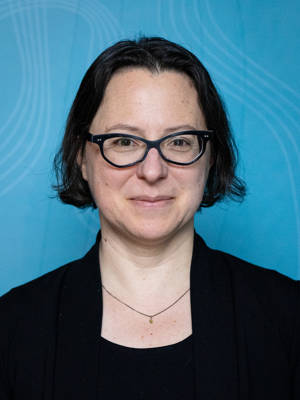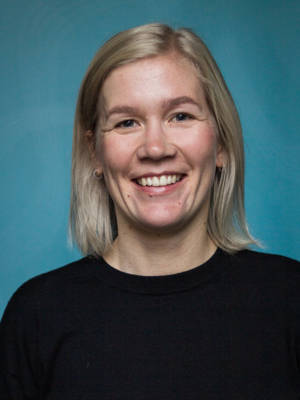.jpg) Lake Bam, Burkina Faso. Photo: Ollivier Girard for Center for International Forestry Research (CIFOR)
Lake Bam, Burkina Faso. Photo: Ollivier Girard for Center for International Forestry Research (CIFOR)
This project has been completed, but you can follow updates on research output and events from other climate and conflict projects at PRIO if you visit our Climate and Conflict Blog.
Climate Anomalies and Violent Environments (CAVE) seeks to understand how climate variability affects dynamics of political violence. In the past few years, rising food prices and the global financial downturn have increased the ranks of the world's food insecure to over a billion. The food crises in 2007-08 and 2011 spurred demonstrations, riots and political turmoil in a high number of countries across the globe. High food prices, driven partly by adverse weather conditions, are frequently cited as a key ingredient in the cocktail of motivations underlying the "Arab Spring" uprisings. However, the scientific community is yet to reach consensus on specific links between climate and political violence and has thus far studied climate-conflict linkages in relative simple and direct manners.
CAVE seeks to extend and improve current knowledge on the relationship between climate variability and political violence. The project is guided by the following overarching research question: How does climate variability affect dynamics of political violence? This question will be addressed through the accomplishment of three key objectives, each of which forms the basis for a work package (see below):
(1) Understand how climate variability interacts with land use changes in affecting political violence
(2) Understand how food security impacts of climate variability affect political violence
(3) Understand how economic impacts of climate variability affect political violence
CAVE adopts a mixed methods approach, combining rigorous statistical analysis at various levels of aggregation with qualitative in-depth analysis of selected cases. In order to better capture plausible climate-conflict dynamics at a local level, the project will build on recent methodological advances in geographic information systems (GIS) technology and new geo-referenced data. Much of the empirical work will center on Sub-Saharan Africa, where social vulnerability to climate extremes is most apparent and other conflict-promoting conditions are most widespread.
This three-year research project (April 2015 – March 2018) is funded by the FRIPRO program within the Research Council of Norway. The project brings together researchers and institutions from Norway and abroad, with Halvard Buhaug (project leader) from PRIO; Ole Magnus Theisen from the Norwegian University of Science and Technology; Tor A. Benjaminsen from the Norwegian University of Life Sciences; Clionadh Raleigh from the University of Sussex, Eric Neumayer from the London School of Economics and Political Science. The researcher team further involves three associate PhD candidates: Ida Rudolfsen at PRIO and Uppsala University; Hanne Seter at the Norwegian University of Science and Technology, and Nina von Uexküll at Uppsala University, in addition to research assistance from Karim Baghat and Elisabeth Lio Rosvold at PRIO.
The project will be organized into three complementary work packages:
Work package 1: Livelihood insecurity
The first work package addresses how climate variability interacts with land use changes in affecting political violence. Large parts of rural Africa are suffering from increasing land pressure due to a convergence of adverse trends, such as climate change, population growth, land use changes, land acquisition by international actors, carbon forestry, as well as processes of land conversions related to cropland expansion, expansion of urban areas, and establishment of new administrative boundaries. In the absence of good governance these converging trends further increase the risk of conflict over use of rural land. Work package 1 studies how climate variability combines with other drivers of land pressure such as population growth and land acquisition in affecting outcomes such as political violence, land-use disputes and local food- and livelihood security.
Work package 2: Food insecurity
The second work package seeks to understand how food security impacts of climate variability affect political violence. Two primary pathways through which climate-induced food insecurity influences peace and stability are identified: First, drought, heat waves, and other extreme weather events have the potential to exert significant impacts on food prices. In the recent global food crises, failing harvest among some of the world's major food exporters contributed to a dramatic increase in the international price of many food commodities. Second, whether climate anomalies will translate into human insecurity depends on the vulnerability of the agricultural systems and its capacity to cope with adverse changes.
Work package 2 explores these causal channels empirically. Prioritized objectives will be to assess to what extent global fluctuations in food commodity prices affect political instability; and to determine the role of agricultural sensitivity in mediating local climate-violence connections. Further, we will study differences among food producers and consumers in vulnerable societies in terms of coping capacity and resilience. Work package 2 will move beyond the current research frontier by considering a wide range of possible insecurity outcomes, including urban demonstrations and riots, one-sided violence, communal clashes, and coups d'état.
Work package 3: Economic insecurity
The third work package explores how economic impacts of climate variability affect political violence and other insecurity outcomes. A novel contribution in this regard is the decoupling of general economic performance from agricultural performance and the explicit consideration of alternative causal mechanisms of an indirect climate-conflict relationship besides agricultural income.
Even among countries with a small agricultural sector, climate variability can have economic implications through its impact on tourism, trade, and investments. Hence, work package 3 will particularly address whether climate affect political violence via other economic transmission mechanisms than agriculture. The effects of past climate change on shifts in tourism-related incomes and investments will further be studied. Finally, we will evaluate whether local economic impacts of natural disasters affect political violence by drawing on new and precise geocoded data on natural disasters and the economic and human losses incurred, combined with other relevant geo-referenced socio-political and conflict data.

.jpg?x=300&y=400&m=Cover&)













